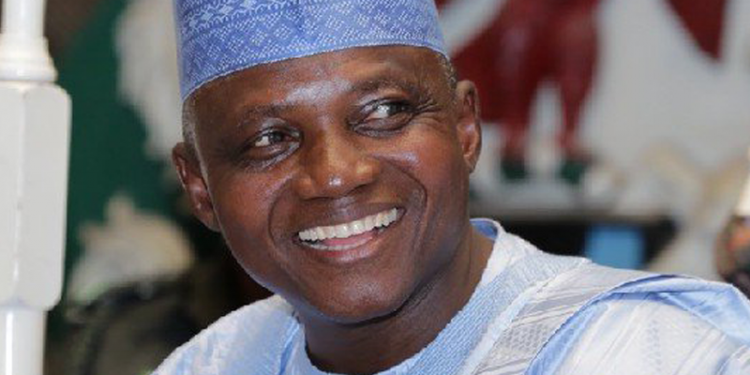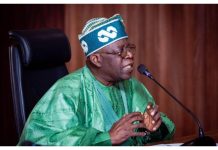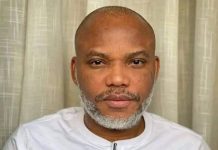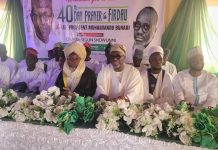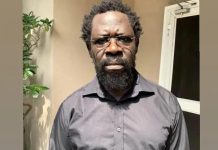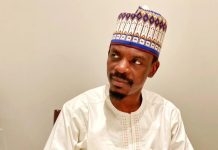Africa Press-Nigeria:
The Presidency has debunked claims the administration of President Muhammadu Buhari is biased against any ethnicity or religious group.
The assertion was in response to a letter addressed to the Nigerian government by some British interests, including members of the British Parliament, legal experts and campaigners.
The Presidency, in a statement by the Senior Special Assistant to the President on Media and Publicity, Mallam Garba Shehu, also urged the British Parliament, as well as other British national interests to be wary of petitioners with hidden agendas so as not to be victims of dubious propaganda.
Clearing the air on the state of affairs in Nigeria, the Presidency discarded the assumption that the Muhammadu Buhari-led administration had been folding its arms while structures collapse in the country, saying that administration had been devoting quality attention and resources to all the issues raised in the letter.
According to the Presidency, the issues bordering on herders/farmers clashes, the protracted fight against insurgency and the phenomenon of banditry and other forms of criminalities, had been receiving appropriate attention, stating the various efforts of government to tackle each menace.
It went further to debunk the claim by two of the signatories to the petition against the administration; General Theophilus Danjuma (Rtd) and the leader of the Indigenous People of Biafra (IPOB), Nnamdi Kanu, citing reasons why their allegations or information emanating from such characters as these should be disregarded.
“The President and Government of Nigeria welcome the seriousness of the letter from UK lawmakers, legal experts and campaigners.
“We welcome the attention paid to this serious challenge by the Commonwealth Ministerial Action Group and seek to work with you, the Commonwealth and all concerned parties to bring a lasting solution to herder-farmer clashes, and the threat posed to all Nigerians – and the Sahel region as a whole – from Boko Haram terrorists and their allies.
“We ask our British colleagues to visit Nigeria, whether formally or informally to discuss all the points raised in their letter. Our government is made equally of Christian and Muslim cabinet members; our Vice President is an Evangelical Pastor. We have everything to gain as a country through international cooperation with concerned, senior British parliamentarians and policymakers.
“The threat to civilians and peaceful co-existence between different ethnic and religious groups from Boko Haram, banditry and land disputes is of serious concern to the President and the government. It is incorrect, however, to assert that the government has or is doing nothing to address these intertwined threats.
“Firstly, there are on-going efforts for the establishment of cattle ranches to prevent or curtail open grazing, the practice that brings herders and farmers into conflict. This is an age-old problem facing Nigerian Governments since the colonial days.
“However, matters of land distribution are dealt with at state level. This means willingness has to be shown by state governors to drive the process forward. The Federal Government launched a plan last year to work with states to address these issues – together. Unfortunately, this has been lacking in some states.
“Secondly, with regards to the long and determined battle waged against Boko Haram, Nigerians are aware of the efforts made by this Government. When the government came to power, the terrorist group held and administered an area the size of Belgium. Now they hold none. The terrorists are hiding out amongst remote forests and across borders. This makes it difficult to extinguish the final flames of the insurgency, and the government has no illusions of the potent threat still posed. However, the progress made cannot be denied.
“Thirdly, in the face of rising crime and insecurity, the government’s new community policing initiative was launched this month. 10,000 new constables are being recruited from the areas they will safeguard – as opposed to past practice. The government hopes this will bring policing closer to local communities. N13 billion has been earmarked for this initiative”, the statement said.
Meanwhile, responding to the characters of the petitioners against the administration, the statement noted that neither General Danjuma, nor Kanu, deserved to be taken seriously, citing their personal antecedents, including the fact that Danjuma, as Minister of Defense, between 1999 and 2003, supervised the putting down of both ethnic religious uprisings, while Kanu had been using religion as a guise.


